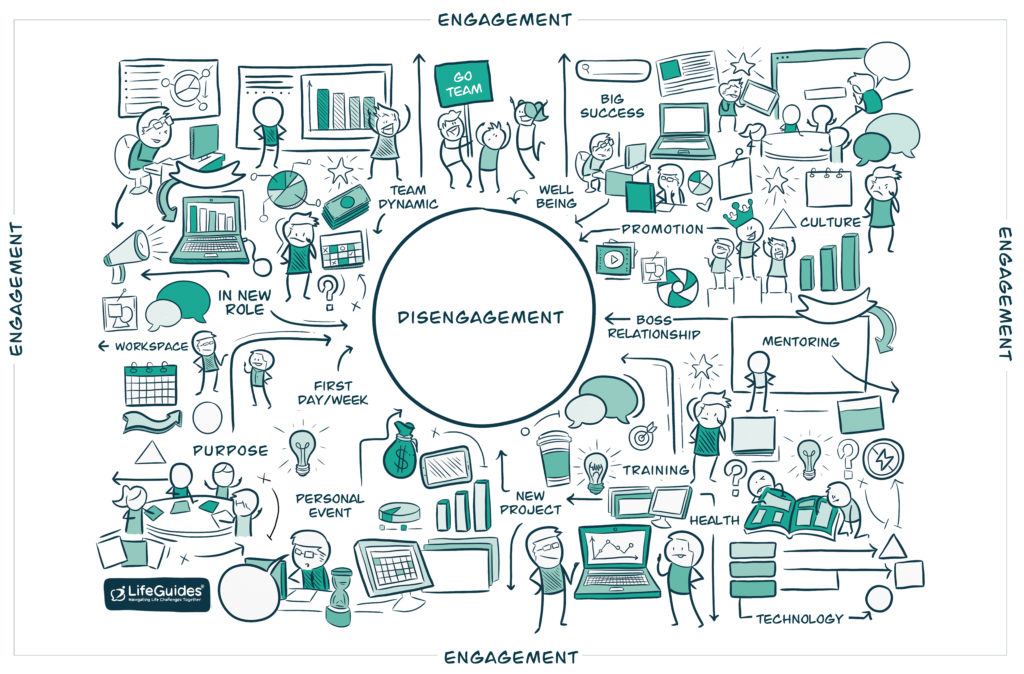Work-Life Integration’s Impact on Employee Well-being
Today’s employees are looking for work experiences that are purposeful, fulfilling, aligned with their values and their pursuit of both personal and professional goals. They’re attracted to employers who can help them fulfill these needs and manage this challenging work-life integration.
The paradigm has shifted, as employees now look for a win-win work relationship and for organizations that care about them as human beings. The bargaining power is even more in the employees’ hands that it is in the employer’s hands. As a result, leading employer brands have created workplaces that not only recognize but also support their employees’ whole-selves. These winning organizations provide employee experiences that enable their people to thrive, a culture that creates a constant positive state of well-being, and guidance that helps employees reach their full potential.

Employees can’t leave their personal life at the door when they come to work. Everyday life challenges and stressors can pose barriers to employees’ well-being and distract them from focusing and succeeding at work.
When employees are supported individually as human beings – not as numbers on a spreadsheet – they are more engaged, more focused and more productive.
Employees now expect their employers to recognize their whole selves (from their individual beliefs and values, their different backgrounds, experiences and skill sets, to their individual needs, wants, priorities or challenges). While both conscious leaders and employees recognize the importance of supporting the whole person inside and outside of work, most companies still underestimate just how critical it is in attracting and retaining talent.
Recognizing the whole person means engaging with different employees in different ways. Most employers tend to treat their employees as a unique group of individuals, missing the opportunity to connect with them on a more personalized level.
According to Metlife, “as employee expectations of their employers increase, perceptions of their benefits are not keeping up: employees’ satisfaction with their benefits packages is declining.”
The understanding of employees’ feelings, challenges and needs is critical to create a more holistic and positive workforce experience, and as a result improve employee engagement and performance. Caring leaders empathize with their people’s challenges – at work and at home – and want to help, but they don’t always know how.
As the lines between personal and professional lives are blurred, there is a need for an expanded and holistic approach that augments traditional employee support – supporting them physically, emotionally, spiritually and mentally.
What Conscious Leaders Do

As crazy as it may sound to many executives, conscious leaders actually encourage vulnerability (their own as well as their people’s) and cultivate compassion in the workplace. By doing so, conscious leaders build trust between employees and managers, create a place where it’s to open up about personal challenges. As their sense of well-being is higher, employees are more engaged, more focused, more innovative and more productive.
A culture like this encourages workers “to bring their full assets and gifts to work as well as their foibles, weaknesses, and inevitable vulnerabilities,” said Dr. Dutton.
- Sr. Director, Client and Community Experience (Executive Team)
- Founder of the Employee Experience Summit (a nationwide city-tour of EX conferences)
- Founder of the Employee Experience Podcast
- Author of the first B2E (business to employee) Branding Manifesto



